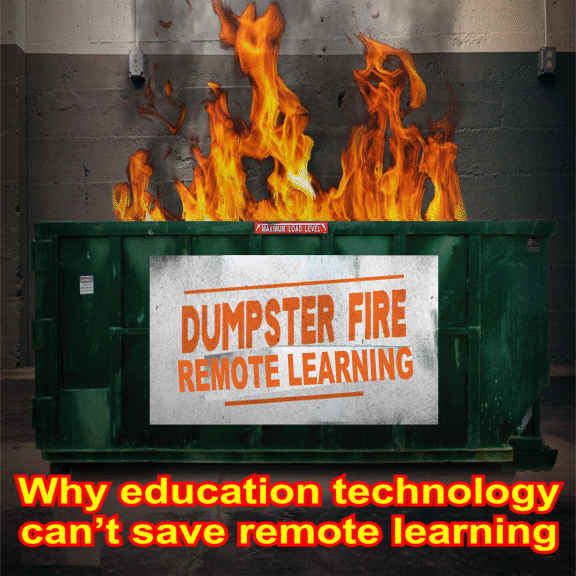The coronavirus-sparked shift to widespread remote work has been generally smooth because most modern offices were already using a raft of communication, collaboration and administrative tools. Remote learning has faced a much rougher transition.
Why it matters: Even the best technology can't eliminate the inherent problems of virtual schooling. Several key technological stumbling blocks have persisted in keeping remote learning from meeting its full potential, experts tell Axios.
1. The needs of IT departments and students can be at odds. A university's chief information officer or a school's IT administrator judge software on how secure it is; how well it integrates with other systems; and how easy it is for an administrator to control. Student users just want a simple interface and features that make learning easier.
- "That gap is a source of a lot of issues and the continued success of legacy software in education," said Peter Reinhardt, CEO of Segment, which focused on education technology before pivoting to be a customer data platform.
- Ed tech has become a tough area for startups and capital investment because risk-averse school tech administrators tend to stick with software they, or their counterparts in other districts or institutions, are already using.
2. Existing tech can't just be grafted onto remote learning. "The variety of the tools we use in business... were designed for business and not students," said Eric Reicin, president and CEO of BBB National Programs, which oversees advertising and privacy practices for businesses.
- That means products like Zoom or Slack or Microsoft Teams that have been vital for keeping offices going during the pandemic may be ill-suited for young students, who may struggle with usability and their own attention spans.
- But it also means that these sorts of tools may not comply with existing guidelines and requirements schools and districts have for the tech they're able to use, which can vary considerably across different counties and states.
3. The digital divide looms over everything. Low-income students have less access to devices CONTINUE READING: Why education technology can’t save remote learning - Axios























